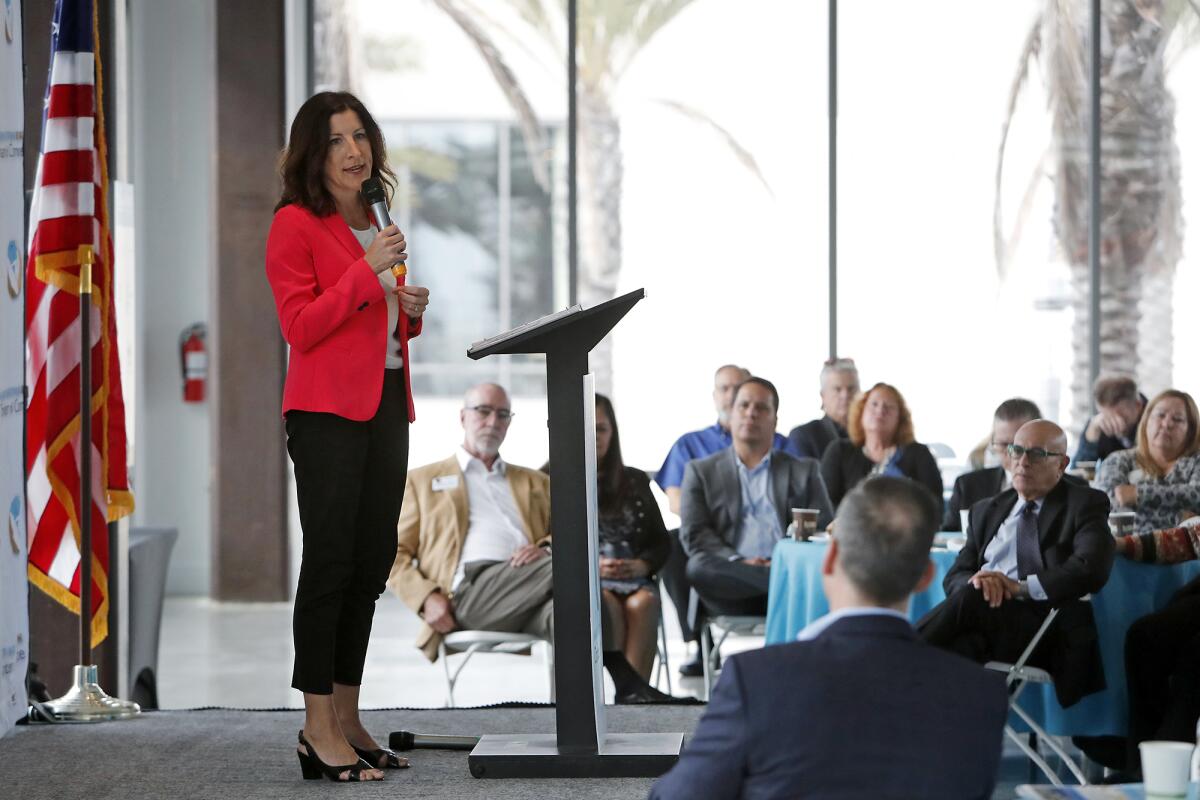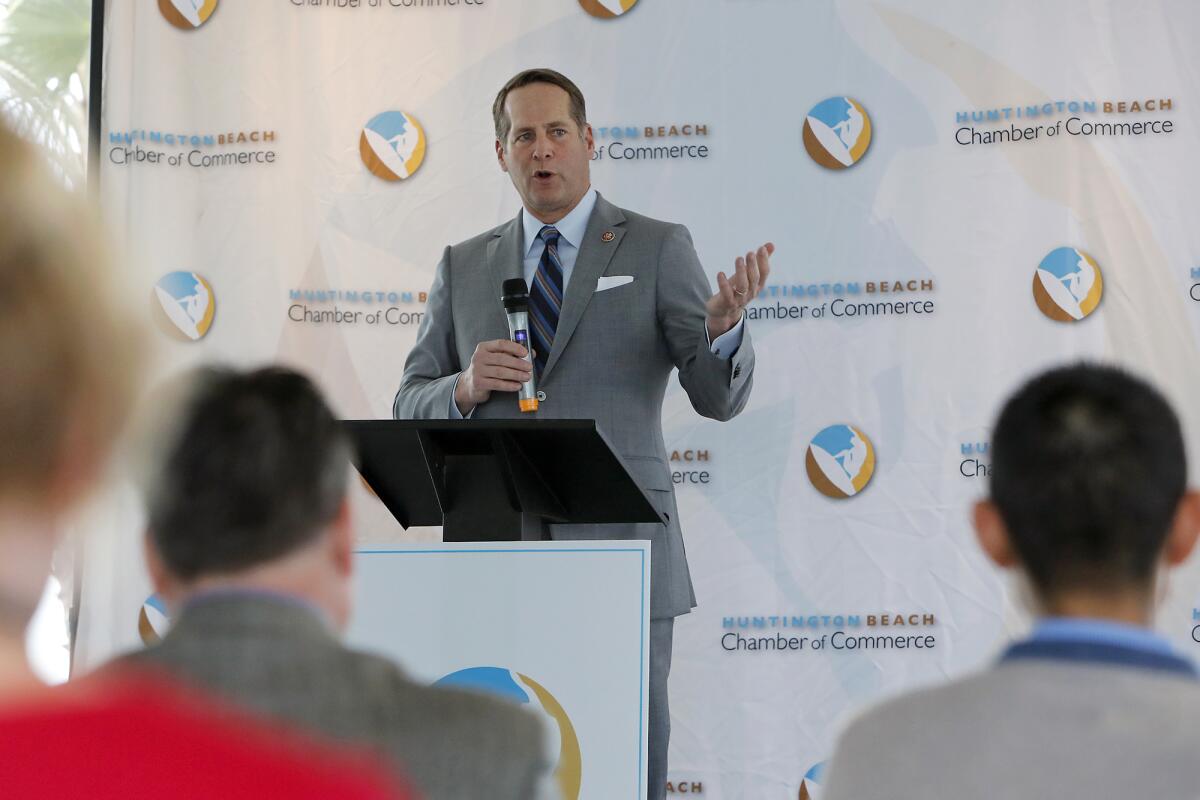Officials address state of O.C.’s economy, homelessness and climate future at H.B. gathering

- Share via
Elected officials focused on the big issues facing Orange County cities now and in the future at a State of the County address Friday, with talk of homelessness, the opioid crisis, workforce development and adapting to California’s economic and climate future taking center stage at the Pacific City shopping center in Huntington Beach.
The emphasis was on how the gravest issues affecting local communities are interconnected.
“The first bill I passed into law was to address the opioid crisis,” said U.S. Rep. Harley Rouda (D-Laguna Beach). “It is not a Republican issue, it’s not a Democratic issue, it’s an American issue.”
The Orange County Health Care Agency reported in 2017 that the county had seen an 82% increase in overdose deaths since the turn of the millennium.
State Assemblywoman Cottie Petrie-Norris (D-Laguna Beach) said more than 40% of Orange County’s homeless people have a serious substance abuse issue or mental illness.
“We spend billions every year ... and the simple truth is that it is simply not working,” she said, calling the opioid crisis a mental health crisis.
Speakers also addressed how climate change might transform the state’s economic landscape.
“We can look out the window right here and understand how important it is for us to maintain the integrity of our beautiful beaches and where we live,” Rouda said, gesturing at the crashing waves beyond the wall-to-wall windows overlooking Huntington State Beach.
“It is not the question of if we address climate change. It is a must. So let’s lead the country with new businesses that will address clean energy,” he said.

“The coast is a major driver of California’s economy. ... There are millions of people and billions of dollars at risk,” Petrie-Norris said.
“Orange County’s [economy] has been exceptionally strong,” she added. But she cautioned that adaptation is imperative to safeguard the county’s future.
“So many of the jobs we will be doing in 10 years do not even exist today,” she said. “Exciting prospects ... but also so many risks and challenges.”
The future is a tech-driven economy, Petrie-Norris said, and she focused on the need for workforce development programs.
“We are already seeing that the labor force is actually unprepared to meet the needs of our market,” she said. “California job growth is starting to slow. ... One of the reasons it is slowing is because we do not have the people with the right skills to fill those jobs.”
Local leaders weigh in
Huntington Beach Union High School District Supt. Clint Hardwick pointed to his district’s career readiness and vocational training opportunities, which include a working farm that produces 87,000 pounds of produce a year, a construction course in which students erect a building from the ground up and an emergency medical technician program through which students can get certified to enter the field.
The district also has adult programs that offer coding, medical billing and other in-demand technical skills.
Sue Parks, president of Orange County United Way, highlighted the way her organization works with high school students through mentors, mock-interview and résumé-building opportunities and stipend-supported summer internships to help low-income and at-risk students become college- or career-ready.
For Orange County residents experiencing housing insecurity or underemployment, United Way offers courses focusing on skill development for jobs in technical fields such as information technology or healthcare.
If a student is homeless, a high school can facilitate graduation by reducing the credits the student needs, Hardwick said.
“Maybe they got behind. ... But if they get some important competencies, we can get them a high school diploma,” Hardwick said.
The business sector also is paying attention to housing security.
“If you can’t house your employees, it’s difficult to attract [them],” said Orange County Business Council Chief Operating Officer Natalie Rubalcava. That’s why the council advocates for workforce housing, she said.
The average two-bedroom apartment in the county rents for $2,400, and it doesn’t make business sense to pay all workers a wage that matches the housing market, Rubalcava said.
She acknowledged that “affordable housing is not a popular term” but said the Business Council’s members are working on “smart projects” that build “around transit areas and shopping centers where it makes sense.”
“We’re really looking to business to help solve the problem ... because we can actually move quicker than government in some cases,” she added. “We can help and support our policymakers in that way.”
All the latest on Orange County from Orange County.
Get our free TimesOC newsletter.
You may occasionally receive promotional content from the Daily Pilot.








